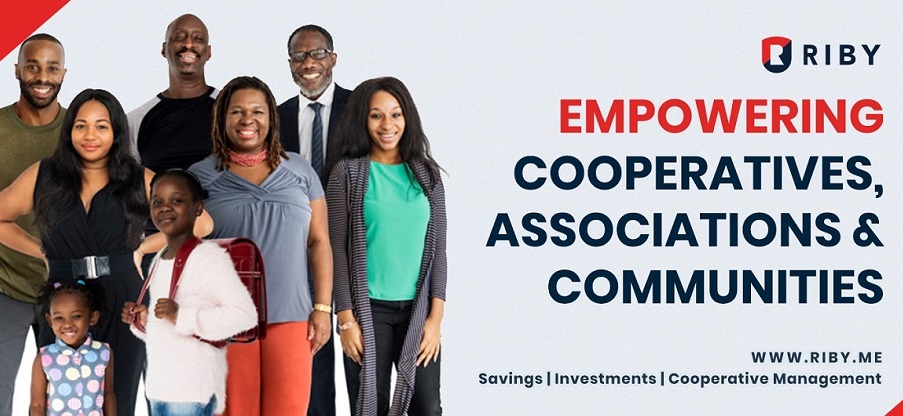Nigerian startup Riby, which helps communities, trade groups, cooperatives and SMEs digitise their operations in order to access financial services, is planning expansion across Africa after building up a strong nationwide presence.
Launched in mid-2016, Riby helps organisations go digital in order to access services like savings, loans and payments via its digital platforms and offline channels.
Its offering has three main components. Riby CoBanking digitises the activities of group-based savings and loans organisations to help them become recognised by the formal financial system. The Riby Enumerator, meanwhile, allows the startup’s bank, DFI and enterprise partners to digitise their engagement with various groups and individual users, which enables them to extend credit and other forms of financial and related-services to these segments.
Finally, the Riby Agent App is the human-to-digital bridge between the manual methods used by non-digital customers and the startup’s digital platforms. With this app, Riby-approved agent points can offer financial and related services to groups and individuals. To further enhance its ability to serve offline customers, it also provides informal groups with the Riby Passport, a savings booklet equipped with an NFC t that helps members to keep track of their transactions.
Salami Abalore, chief executive officer (CEO) of Riby, told Disrupt Africa that before now the processes of these cooperatives had been manual, slow and inefficient, and almost impossible to scale or manage at scale, thereby discouraging participation.
“So we are providing access to basic banking facilities to individuals and SMEs through the financial support system they already recognise and trust, like cooperatives, trade groups and other financial groups, and providing business and personal loans and savings that support the most excluded and underserved members of the middle-to-low income class,” he said.
The startup is also increasingly deepening its product stack to enable it to offer financial services to individuals and small business owners, and last year kicked off an expansion project called “The People’s Bank” in partnership with EFInA, a DFID and Gates Foundation funded financial sector development organisation. Riby’s target market is very large indeed, with about 400 million Africans unbanked or underbanked, and with unstable means of creating and managing wealth.
“These people currently engage in one form of financial transaction or the other, but these transactions do not go through the formal financial system,” said Abalore.
“This has created a gap in the delivery of financial services to the last mile, and the underserved or unbanked population do not have access to, or the basic requirements to access, the benefits of formal and institution-backed financial services which is ultimately needed in creating wealth and financial stability.”
Informal groups and cooperatives, meanwhile, currently manage their activities manually, while the formal groups mostly use spreadsheets and custom cooperative banking platforms. Abalore said these are in most cases very expensive and not well connected to the financial system.
“Attempts have been made to address this but it’s been largely insufficient. We have now digitised the entire process of accessing financial services for both the individuals and groups regardless of whether they have a smartphone or no phone at all. This being a first step to helping the groups get connected to the tools they need to create wealth,” he said.
The second step for Riby, which is now in full swing, is helping its users to earn a liveable income, access the loans and financial products they need to sustain their families and businesses, and manage their finances in a way that helps them build wealth.
“We believe our customers need more than a platform or technology. This reality drives us and we believe this also sets us apart from our competitors,” Abalore said, adding that the competition across its various platforms included fellow Nigerian fintech startups like PiggyVest, CowryWise, Kuda and Kudi.
Riby raised a seed round in 2017, but has been revenue-funded for most of the past two years. Abalore said it has now expanded its offline presence in Nigeria to over 20 states and across all regions, serving over 2,000 groups and a good number of large enterprise clients.
“We hope to expand to other parts of Africa when the time is right,” he said.
The startup charges subscription, transaction and customisations fees depending on the client, and has tripled its revenues every year for the past four years. Abalore said Riby was proving that there was a real, sustainable business in what it is doing, that can make both an impact and money.
“Going forward, our business imperative is to focus on our paying customers, serve them well, secure additional capital when we can, and build a sustainable business that supports one million, two million, 10 million Nigerians – both individuals and small businesses – in their quest to be prosperous, attain lofty heights and be financially stable,” he said.


